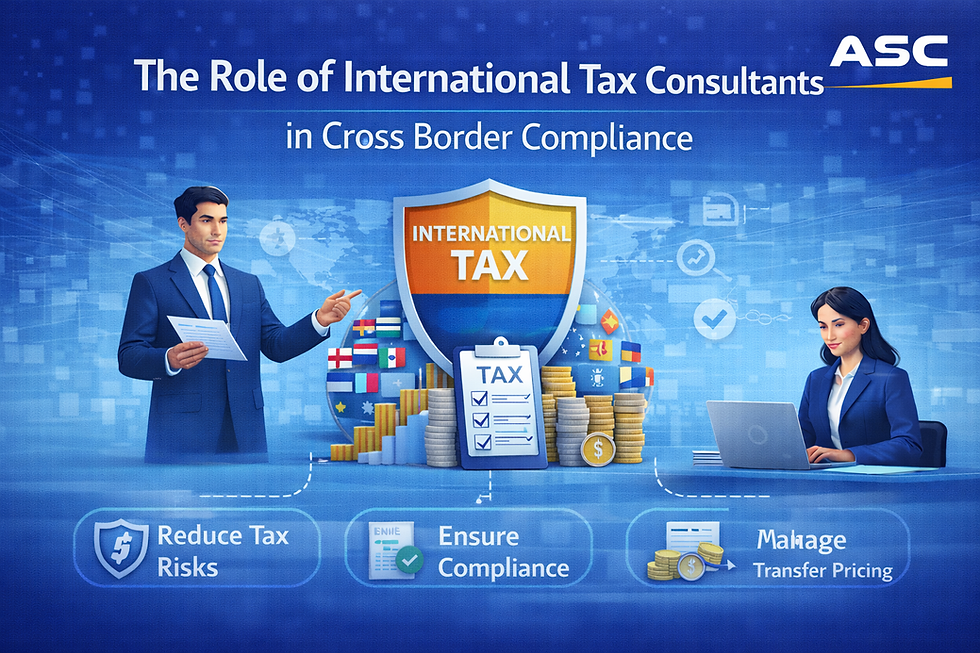BIS Certification Relief for Steel Industry Extended – A Much-Needed Breather?
- ASC Group
- Nov 4, 2025
- 4 min read
In recent months, the steel industry in India has faced mounting compliance pressures under the Bureau of Indian Standards (BIS) regime. Among the most significant shifts has been the extension of relief measures affecting steel imports and certifications. For manufacturers, importers and steel-industry stakeholders, these changes could mark both opportunity and caution. This blog explains the latest developments, the key compliance issues, and how expert help from experienced BIS Certification consultants such as the ASC Group can make a real difference.
What Is the BIS Certification Relief for Steel?
Traditionally, steel imports and many domestic steel products required BIS Certification, BIS Registration or a BIS License to ensure compliance with Indian Standards (IS). The objective has always been to protect Indian consumers and industry from sub-standard or unsafe materials. However, complexity, delays and cost burdens built up — especially when raw materials and semi-finished imports also required certification.
Recently:
The Steel Ministry has postponed enforcement of certain BIS rules on steel imports by several months, thereby giving importers extra time to align.
In a major development nearly 202 foreign steel licences were exempted from mandatory BIS compliance for the time being — a move meant to ease supply constraints and avoid bottlenecks. mint+1
These steps amount to temporary relief for the steel industry — and provide a window to reassess compliance strategies.
Why This Relief Matters for the Steel Industry
Let’s break down the benefits and implications of this relief:
Reduced Immediate Compliance Burden: Companies can focus on production and supply rather than being held up for certification paperwork.
Supply Chain Continuity: For integrated steel plants (ISPs) and manufacturers relying on imported grades, the relief helps avoid disruptions and keeps projects on track.
Cost & Time Savings: Certification processes often add costs and delay market access. The relief gives firms breathing space to adapt.
Opportunity to Strengthen Compliance: With less immediate pressure, companies can invest in better systems, documentation and standards readiness.
At the same time, important caveats apply: the relief is temporary, it covers specific licences or product grades, and full compliance will likely be required once the window closes.
Key Compliance Challenges Under BIS Certification (and How They Emerge)
Even with relief in place, steel businesses face underlying certification hurdles. Key challenges include:
Complex Documentation & Technical Requirements – Quality manuals, test reports, factory details, product specifications.
Strict Testing & Laboratory Coordination – Steel grades often require multiple tests under BIS-recognised methods.
Regulatory Ambiguity and Updates – BIS norms and notifications evolve; staying current is difficult.
Factory Audits & Inspection Readiness – Even for exemptions, manufacturing standards matter.
Post-Certification Renewals & Surveillance – Certification isn’t one-time; continual compliance is required.
These issues frequently lead to delays, rejections or unexpected cost overruns.
How ASC Group Can Help You Navigate BIS Certification & Relief
In the current landscape, working with experienced BIS Certification Consultants is more important than ever. ASC Group stands out as a prominent choice for businesses seeking expert support in this field.
What ASC Group Offers:
End-to-End Support: From initial eligibility check to documentation, testing coordination, BIS Registration and ongoing monitoring.
Industry-Specific Expertise: Specialised in steel, materials, electrical and industrial goods — sectors under Scheme X or BIS CRS regimes.
Relief Strategy-Friendly Approach: ASC helps companies assess the impact of current relief measures, align with new timelines and prepare for eventual full compliance.
Transparent Process & Client Updates: No surprises — you get guidance and updates at every stage, helping you plan production, import or launch schedules accordingly.
With ASC Group’s assistance, steel industry players can use this relief window productively — strengthen their compliance architecture rather than simply defer obligations.
What Steel Sector Players Should Do Now
Here are actionable steps for steel manufacturers and importers in light of the BIS relief:
Review Current Certifications: Identify which products, licenses or import consignments fall under the relief window.
Document Gap Analysis: Use the period to evaluate your documentation, lab reports and factory audit readiness.
Engage a Consultant Early: Even while relief is in effect, aligning with a BIS Consultants helps you avoid a rush later.
Plan for Eventual Full Compliance: Relief does not mean waiver forever — build systems now for the full certification path.
Monitor Regulatory Changes: Stay informed of new BIS notifications or deadlines so you’re not caught off-guard.
Final Thoughts: Relief is Welcome — but the Long Game Matters
The recent BIS Certification relief for the steel industry is a welcome development. It offers operational flexibility and reduces immediate pressure. Yet, it is not a permanent waiver. The underlying obligations of BIS Certification, BIS Registration, and maintaining compliance through recognized labs, documentation, and audits remain intact.
For steel companies, the smart strategy is to treat this reprieve as a chance to prepare — not postpone. Having a reliable partner like ASC Group, skilled in handling BIS processes end to end, helps you use this time to build a stronger compliance foundation.
By doing so, you’re not just riding out a temporary relief — you’re gearing up for sustained market access, credibility and competitive advantage in India’s regulatory landscape.
If you’re looking for support in BIS Certification or need clarity about how the relief impacts your business, ASC Group is ready to help.




Comments